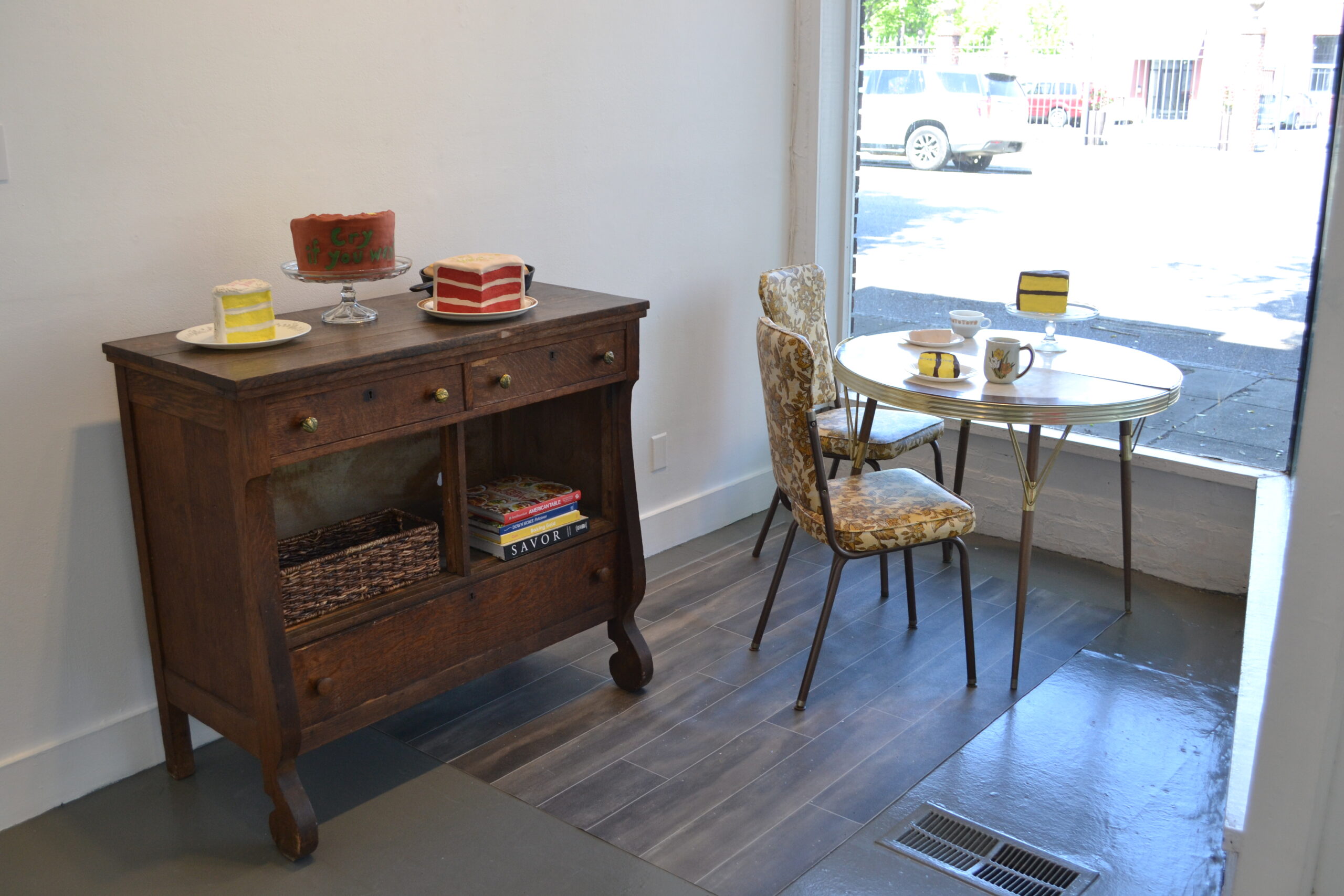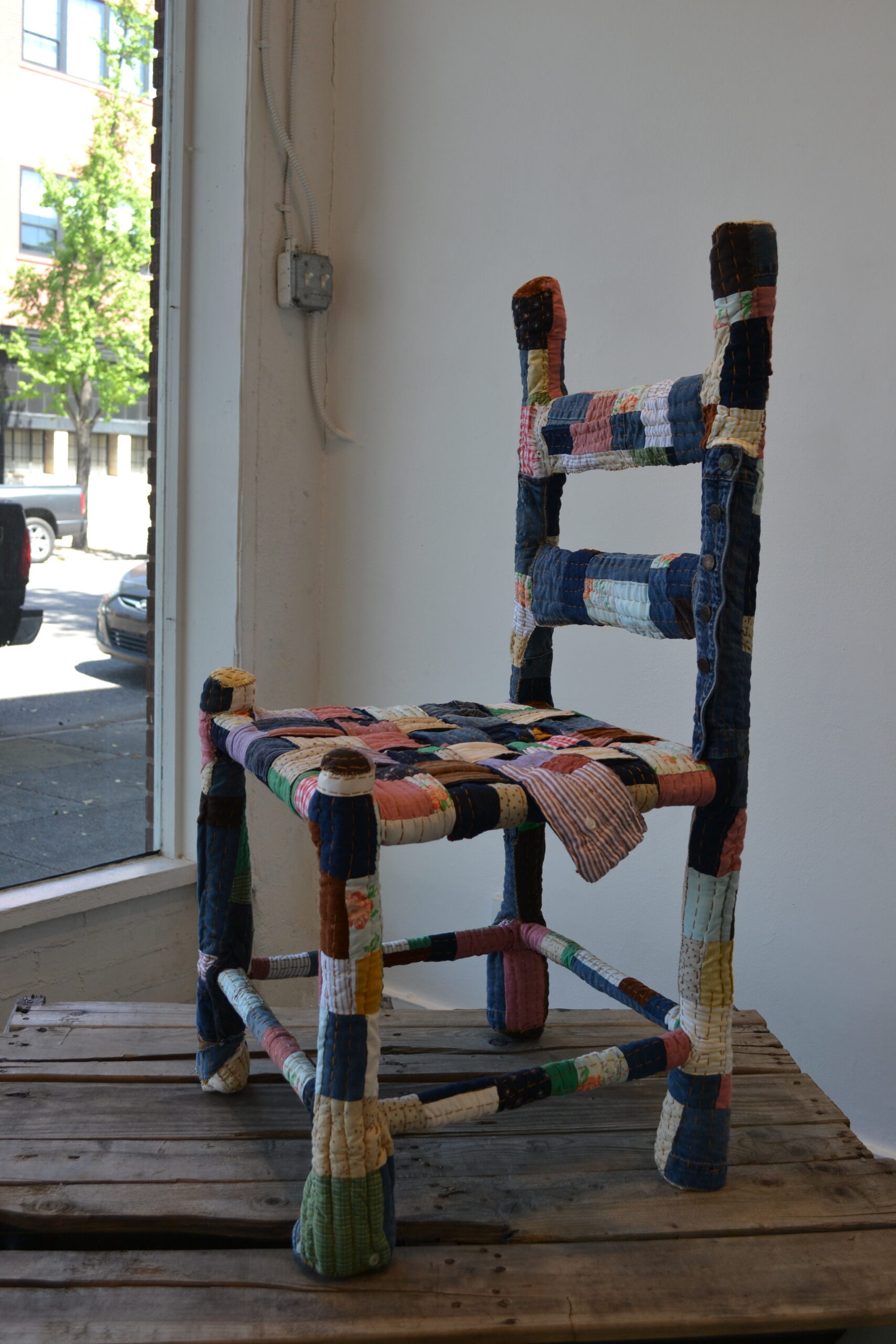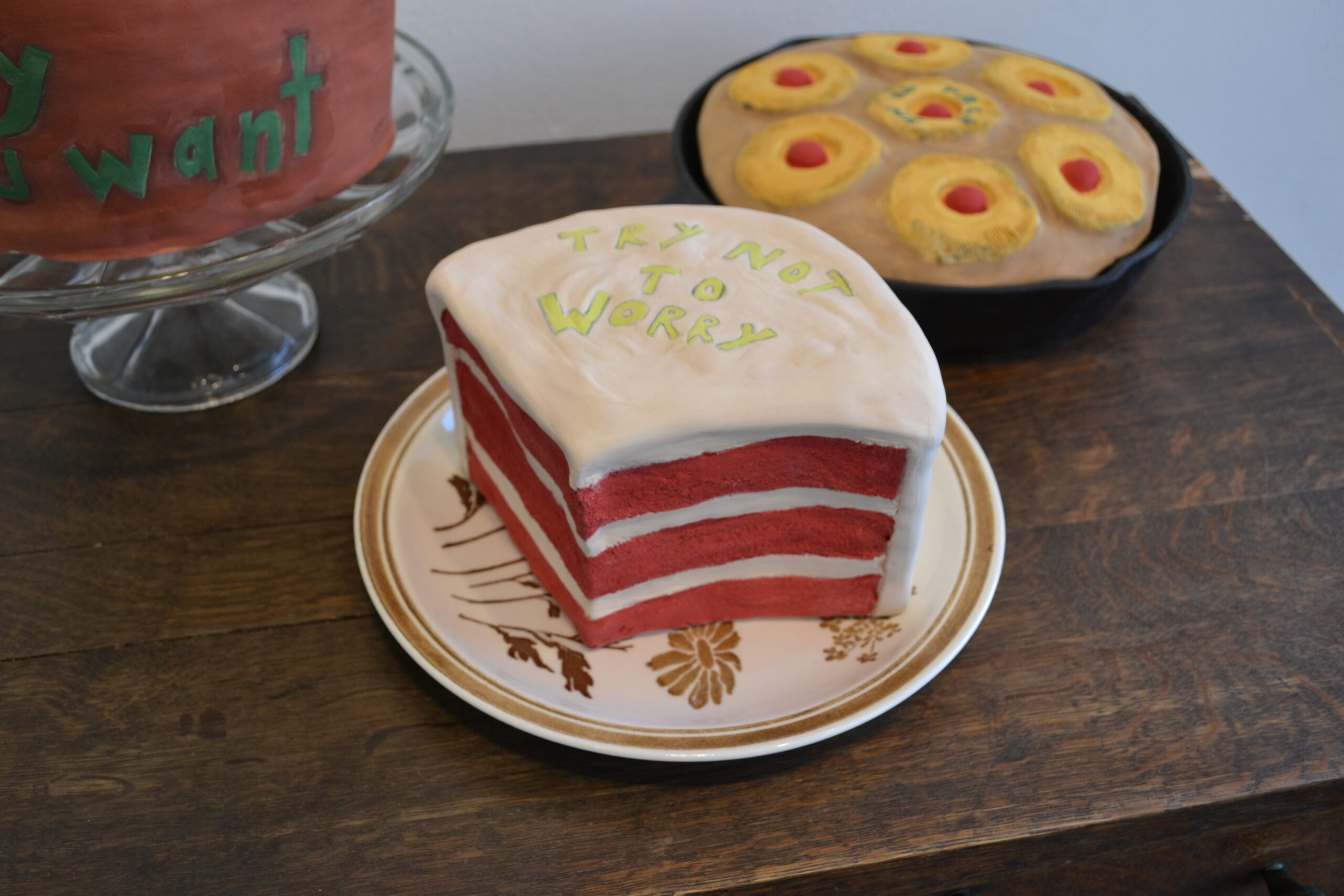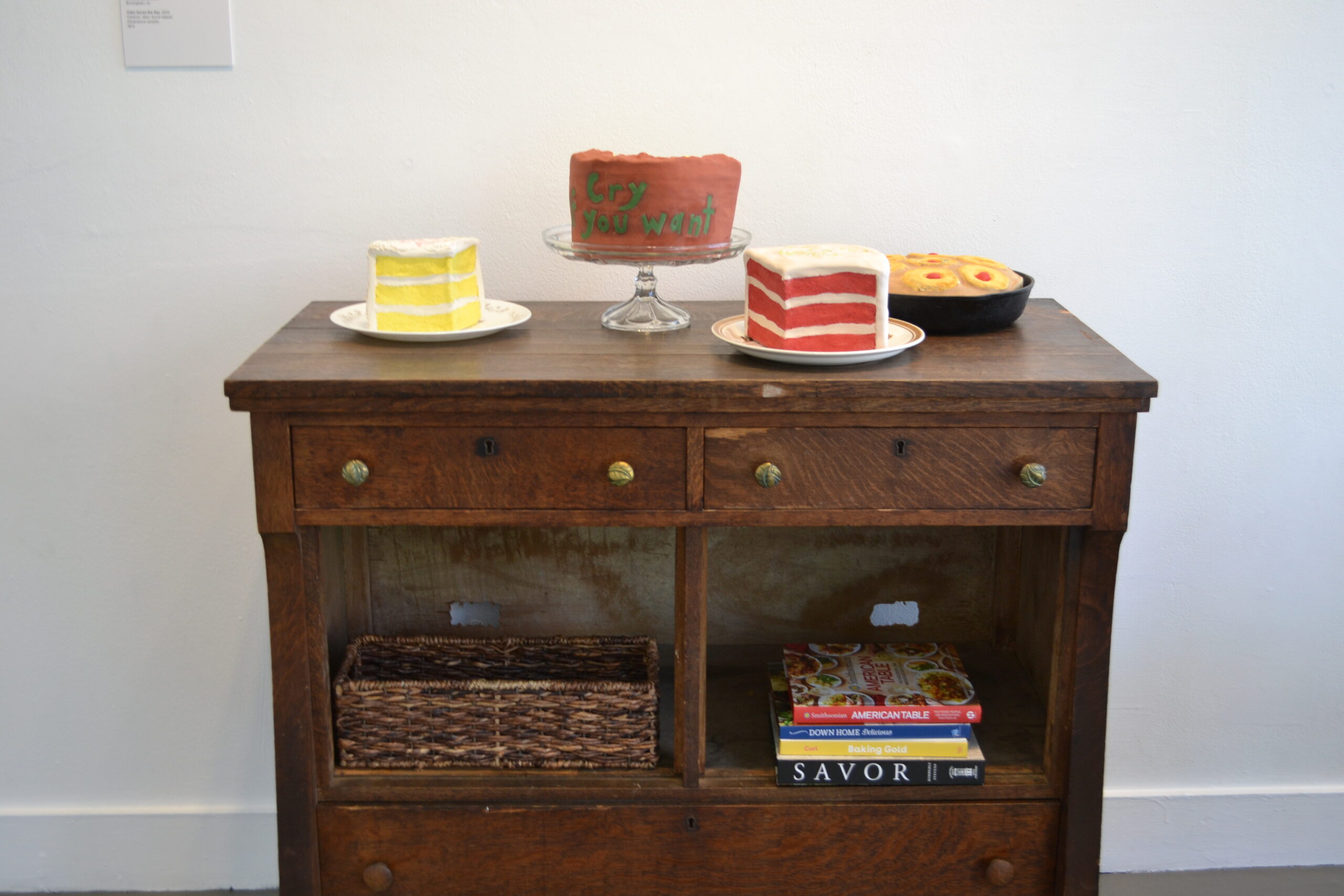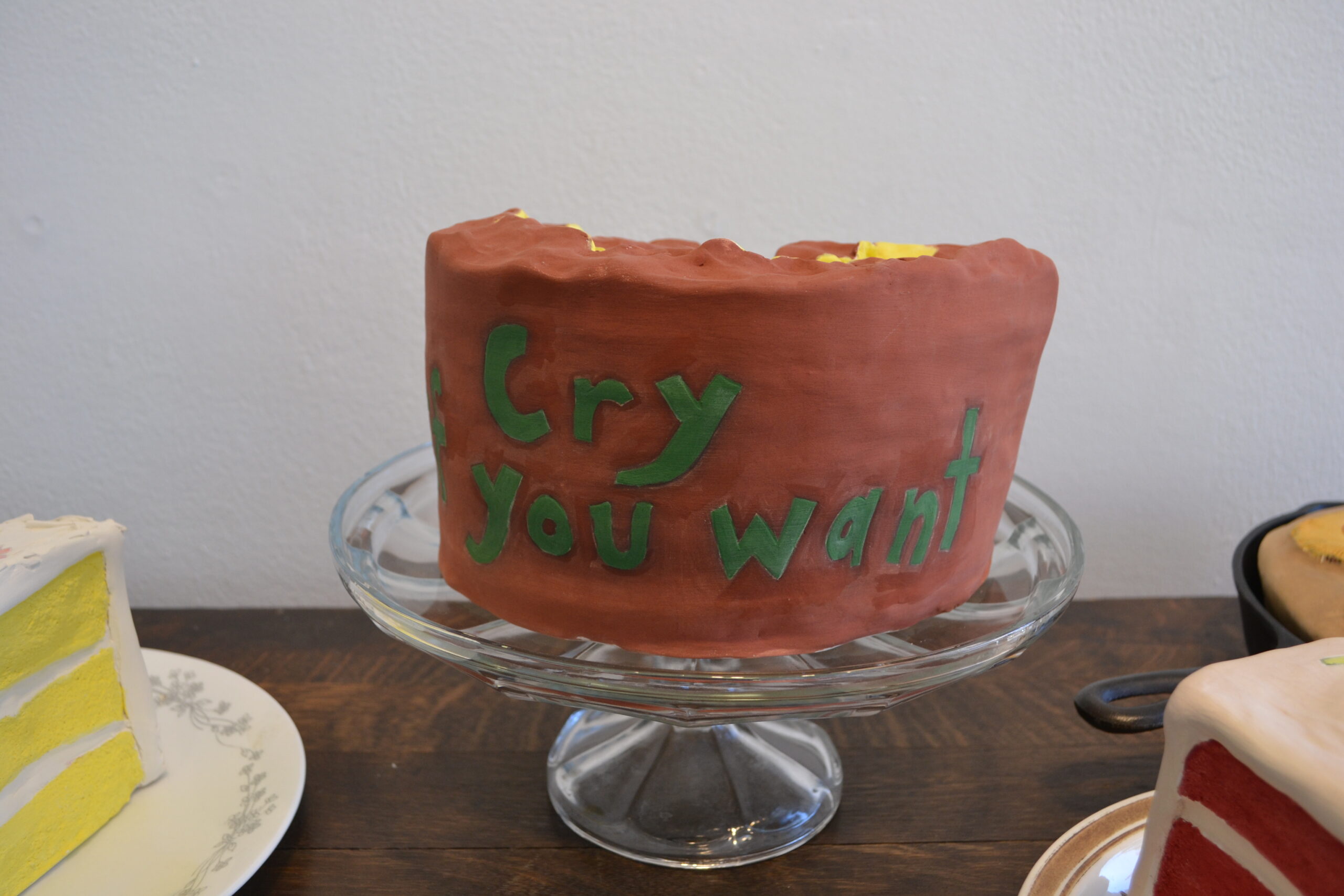Sit a Spell
Jennifer McCohnell
As a Black Southern woman, I was taught and I understand that individual inner strength is deeply connected to the collective strength of women. My mother and all of the women who raised me assured me that women could do whatever they set their minds to. But they also made sure that I knew that my strength as a woman was not something just to be cultivated inside of myself but something that would be nurtured by the love and support of other women in my family and community. This was a necessary part of getting by and getting through this life. A Black woman in the south needed (and still needs!) “…a chorus of mamas, grandmamas, aunts, cousins, sisters, neighbors, Sunday school teachers, best girl friends, and what all to give her the strength life demanded of her and the humor with which to live it.” (Song of Solomon, Toni Morrison)
Cake Saves the Day honors the love and support inherent in communities of women. With hushed voices (and an occasional outburst of laughter), they would sit and talk at the kitchen or dining room table and work things out. These conversations full of love, sadness, anger—all the bundles and variations of human emotion—were often urgent, spontaneous, unannounced situations. Nevertheless, the woman who was serving as hostess/counselor would offer food and beverage—usually some kind of cake left over from Sunday’s meal and a cup of coffee—to ease into the moment.
Sit a Spell is a reminder of the love, comfort and generosity that is cultivated and offered no matter what the circumstances are. The simple ladder back chair with a woven bottom is a familiar object in the American South and can be found in various states of being from mildly neglected to utterly dilapidated. But as long as someone could sit on it, someone did. Even when the bottom was “busted out,” you could put a pillow on the seat and still use it! The phrase “sit a spell” invokes the invitation and spirit with which people welcomed you into their homes and lives. It meant, “How have you been?” and “Tell me what’s been going on?” It meant that someone cared about you and yours. And it reminds us that the true power of community lies in human connection that is warm and authentic instead of detached and transactional.
